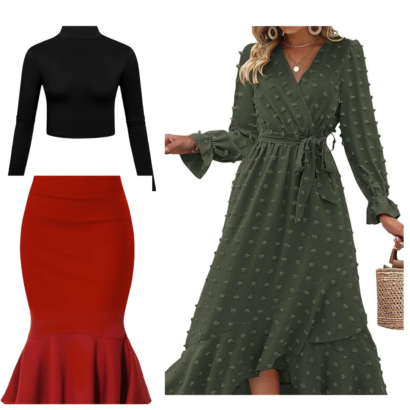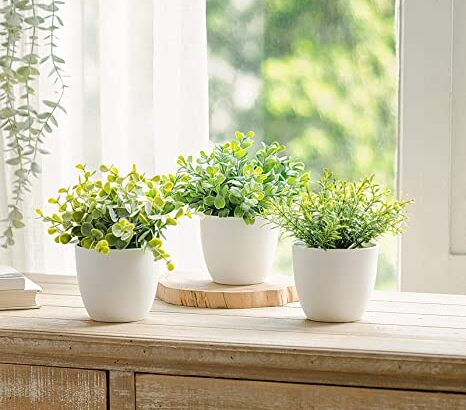Saying Goodbye To Toxic Relationships

Disclosures: While I’ve reaped the benefits of therapy for many years, I am not a therapist. Everything shared in this article is from personal experience and relationships. These are my own thoughts and opinions and should be taken as such. While I do hope they are helpful for you, please consider consulting a licensed therapist to help you navigate toxic and damaging relationships.
You know that couple who you avoid at all costs because they’re so stressful to be around? Or that friend who takes and takes but never gives? Toxic relationships are the pits. Many times people think of toxic relationships as the romantic ones, but honestly they are all around us and can happen between anyone. It’s not uncommon to see it between a parent and child, siblings, friends, extended family, or colleagues at work. Basically anytime there are 2 or more people, it can become toxic.
What does toxic look like? There are a lot of ways a relationship can be toxic. Severe codependency is a common one. Where one person actually can’t make a simple decision without the input of another or can’t stand to be alone, ever. Frequent and incessant texting and/or anxiety or anger when they don’t get a prompt response is another example. Toxicity manifests in many ways. One of the easiest ways to know if you’re in one is to stop and think about how you feel when a certain person is around. If you are on eggshells all the time, afraid to speak up, worried about the repercussions you’ll face from them, etc., you are in a toxic relationship. If you can’t make a decision without immediately thinking of how they will react or how they will feel, you are in a toxic relationship.
Let me share a story of a toxic relationship I observed one of my close friends go through. Names have been changed for privacy. My dear friend Lauren befriended a struggling girl Heather. Rather quickly, Heather began to show up uninvited to the same places as my friend. She always knew where Lauren was and would get angry for not being invited. Lauren wasn’t allowed to express interest in any guy without Heather getting upset or even going as far as spreading rumors about her to the guy. Heather was perpetually trying to sabotage Lauren’s social life. Why? Jealousy, possessiveness, and deeply routed childhood trauma. So why didn’t Lauren just end it right there?
There were a few reasons. The first being that Lauren has a kind heart. Heather recognized that and pulled on Lauren’s compassion with the sob story of her tragic upbringing. Anytime Lauren started to tire of the toxicity and was gaining the courage to end things, Heather’s traumatic history would surface again. Often with new or elaborate details to garner deeper sympathy. Heather had been neglected, verbally abused, was all alone, and developed an eating disorder. She made Lauren feel like a horrible person if she left the friendship because Heather really had no one. She made Lauren feel responsible for her and her well-being. This went on for several years before one day my friend finally had enough. She needed to end this toxic relationship, but how?
Here are the 5 steps that Lauren took to end the toxic relationship without feeling like the bad guy.
- Make the decision
Before you can make any drastic changes, you have to buy into and accept that you are going to be changing or ending this particular relationship. You have to be okay with the outcome. They may get angry, talk trash, cry, apologize, etc. Are you ready and willing to stick to your guns no matter what?
Part of being able to stay strong in your decision is to find the “why”. What are the exact reasons you are choosing to end or alter this relationship? Think about how being around this person makes you feel. Do you feel stressed or anxious at the thought of being near them? Do you find yourself actively avoiding them for as long as you can? Recognizing why you need to end this will help you stay strong in your resolve to do so.
- Solidify your support system
Once you’ve made the decision, you are going to need your support system to help keep you strong! Find your trusted people and fill them in on your intentions. Don’t ask for opinions, ask for their support. If they try to sway your decision, find a different support person. You know your why and you need to find the people who will encourage you no matter what. While solidifying your support system, think about the qualities these people have that make you trust them. This can act as a good reminder as to why you are ending the toxic relationship.
- Don’t delay it. Just do it
The conversation you’re about to have will be tough, no doubt. It is easy to procrastinate it but doing so just puts off the inevitable. The stress of having to do it will still be there, simmering below the surface. Delaying the conversation is unfair to yourself and also unfair to the other person. They deserve to know where they stand in this relationship and although avoiding may be easier in the short-term, it can lead to bigger emotions when the conversation actually happens. When Lauren decided to end the relationship, it was after 2 years of active avoiding and minimal interaction. Lauren spent the whole time knowing the relationship needed to end and felt stress at the thought of doing it. When she finally had the conversation, she was full of nerves but after she had done it, she felt such relief. Let that relief be your motivator. It will be hard, you can do it, and you will feel relief.
- No more contact
Often-times, people feel harsh cutting someone off cold turkey. Here’s the problem with minimal involvement with a toxic person, it doesn’t stay minimal. They do not understand or respect boundaries and you can quickly find yourself right back where you started. You may have to end the relationship entirely, at least for a time, as you rebuild your strength and learn how to hold boundaries. Sometimes, a hard reset is all that is necessary. Most likely, they will continue to press boundaries but if you feel you are strong enough to uphold them and keeping the person in your life is worth it, then you can give it a try. Sometimes, these relationships do need to end for good. You have to be willing to accept the finality as a possibility. Use this time apart to build your own value- discussed below. You can re-evaluate the relationships with people that matter to you when you are stronger and have a solid support system that can help you maintain your relationship boundaries. Until then, no contact!
- Build your own value
There is a reason you let this person infiltrate your life. Perhaps it was a desire to be needed or because you were in a vulnerable place in life and this person slipped right in and exploited that. Whatever the reason, you need to make sure you don’t let another person or the same person slip back in and take over. You need to build your own value!
Daily affirmations are a great way to change your mindset. Simple phrases you repeat to yourself each day that over time your mind comes to believe as true. Some phrases I say to myself daily are “I am strong,” “I will be okay no matter the outcome,” I am worthy of good things.” What do you need to hear each day?
Self-care matters! I’m not just talking about the daily rituals like showers, washing your face, etc. Although, doing those things daily do help you feel fresh and ready to take on the world. I’m talking about diving in and truly taking care of what you need at your core. Some of my self-care include regular acupuncture, massage, therapy, and girls nights out. These are constant activities but I do make sure to budget for them and do them as regularly as possible. What are some things that make you feel revived and strengthened? Implement those regularly in your life.
Allow yourself to grieve the person, the relationship, and the possibilities you envisioned with them. Whether it’s necessary or not, loss is loss. Give yourself time to rest, cry, feel mad, and move forward. There is no set timeline for how long this will take, just make sure you don’t allow yourself to get stuck in any particular step of the grieving process. Grieving forward is the goal.
In my late teens and early twenties, I found myself in 2 back to back toxic relationships. Everyone loved both of my exes, they were fun, charming, and friendly… and it was very isolating knowing the reality of my relationships. I was broken, depressed, and numb. With encouragement from my mom, I sought out the help of a therapist who helped me discover myself and find the strength to end the relationship. I continued to rebuild myself in therapy using the tools she taught me. She was an angel in my life and I am forever thankful to her for guiding me to make these decisions for myself. She was my support person when I felt isolated and alone. I invite you to read 10 questions to ask a therapist before working with them and get that extra support in your life.
Sending you all my best as you navigate the toxic relationships in your life.
Sincerely,
Amanda
Join me over on Instagram for future blog post updates and other content.













